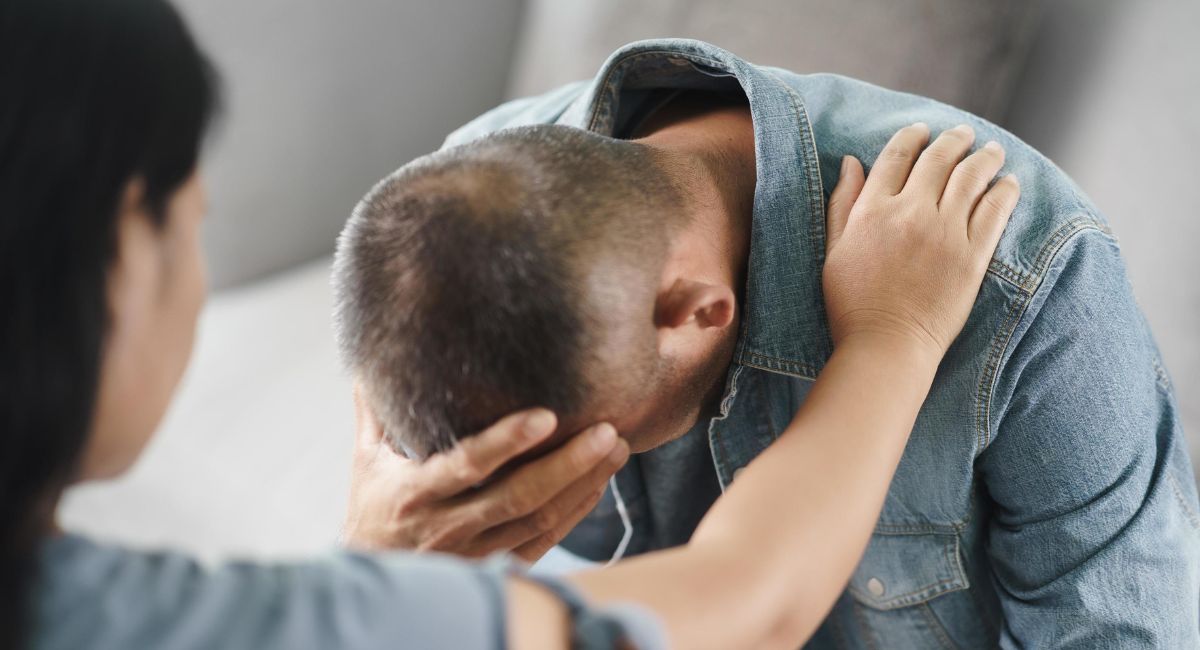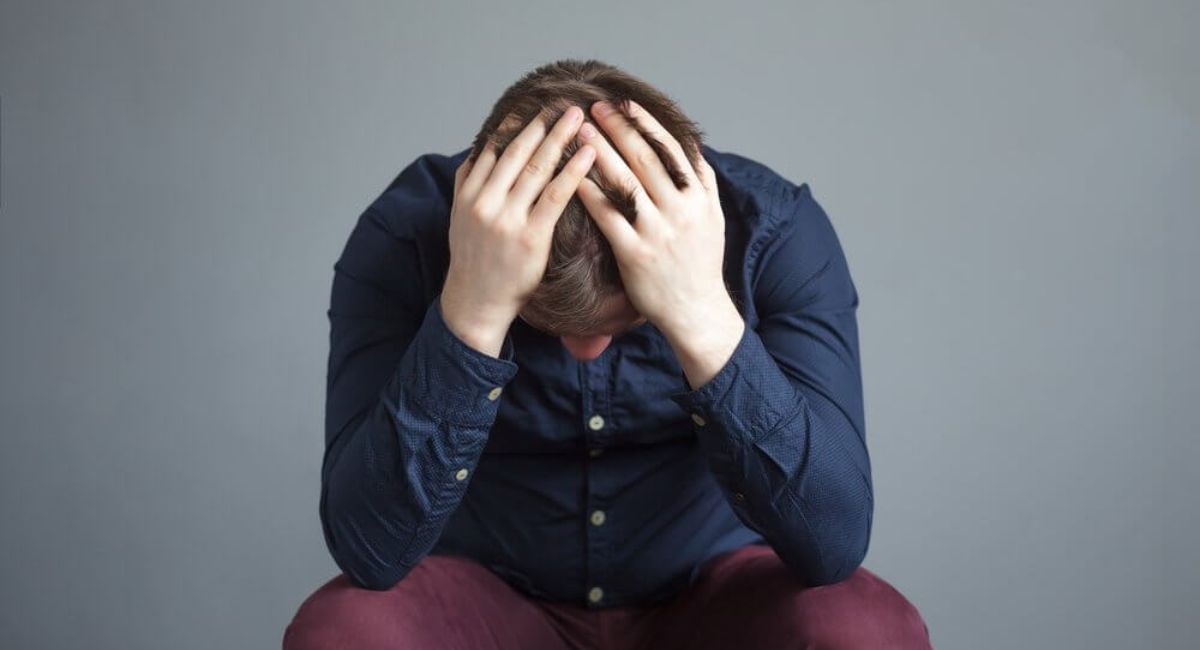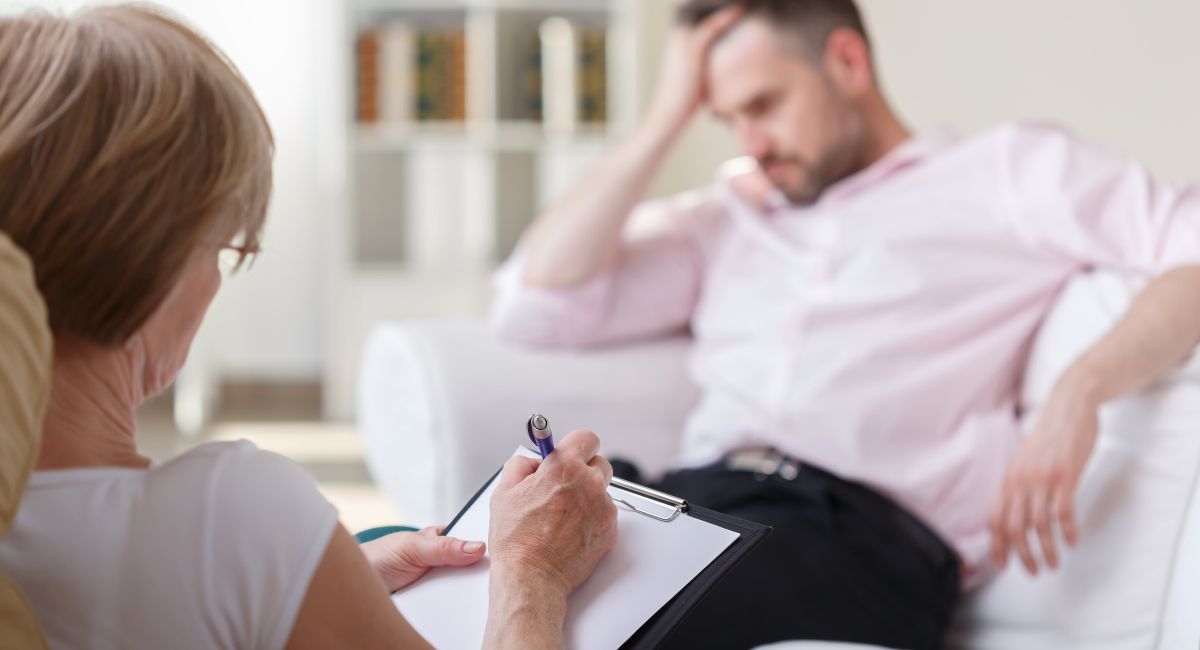Feeling anxious before intimacy or noticing your erections aren’t as strong as they used to be can be really frustrating. You might wonder, “How does stress and anxiety affect ED?” and worry if it’s a sign of a bigger problem. Many men struggle silently with this issue, unsure whether it’s their body, mind, or both causing the difficulties.
This blog post will explore the real connection between mental health and erectile function, explain early signs of stress-related ED, and show practical ways to manage anxiety. You’ll discover effective lifestyle changes, home-based techniques, natural remedies, and medical options to regain confidence and improve sexual health.
Why Do Stress and Anxiety Cause Erectile Dysfunction?
How stress causes erectile dysfunction is rooted in the body’s response to anxiety. When you feel stressed, your brain releases hormones like cortisol and adrenaline. These chemicals are meant to protect you in emergency situations, but chronic stress keeps them elevated, reducing blood flow to the penis and making it difficult to maintain an erection. Anxiety-related impotence often occurs when worry and tension interfere with normal sexual arousal.
Additionally, mental health and ED are closely linked. Chronic anxiety can lower testosterone levels, disrupt sleep, and contribute to depression, all of which can worsen stress-induced ED in men. Understanding this connection is essential for effective treatment and long-term improvement in sexual health.
Early Signs of Stress-Related Erectile Dysfunction

Recognizing early signs of stress-related ED can help men seek help before the problem becomes severe. Common symptoms include inconsistent erections, low libido from anxiety, premature ejaculation, and difficulty achieving arousal. Mood changes, irritability, and fatigue often accompany these symptoms, highlighting the mental component of erectile dysfunction and stress.
Ignoring these signs may lead to worsening performance anxiety, creating a vicious cycle. By noticing these warning signs early, men can implement stress management techniques and seek both home-based ED treatments and professional care to prevent long-term sexual health issues.
What Are the Common Causes of Stress-Induced ED?
Common causes of anxiety-induced ED include workplace pressures, relationship conflicts, financial worries, and major life changes. Lifestyle factors such as poor sleep, high caffeine intake, alcohol use, and smoking can also contribute. Psychological conditions, including depression and chronic anxiety, are strongly correlated with sexual performance and anxiety problems.
Understanding these causes allows men to take targeted action. For example, reducing stress triggers, improving daily habits, and seeking mental health support can prevent stress-induced ED in men from worsening over time.
The Connection Between Mental Health and Erectile Function
The connection between mental health and ED is profound. Men with chronic anxiety or depression often experience diminished sexual desire and performance issues, even if their physical health is otherwise normal. Anxiety can lead to performance-related stress, making sexual activity more challenging and stressful.
Research shows that mental health therapy, mindfulness exercises, and counseling can significantly improve sexual performance and anxiety. Addressing the psychological aspect of ED is often as important as any physical treatment, emphasizing the need for a holistic approach to care.
Can Reducing Stress Improve Erectile Function?
Studies confirm that can reducing stress improve erectile function in men experiencing anxiety-related impotence. Techniques like meditation, deep breathing, regular exercise, and adequate sleep reduce cortisol levels and improve blood flow, enhancing erectile performance.
Many men find that implementing home-based techniques to manage stress and ED—such as yoga or guided relaxation—helps break the cycle of anxiety and poor sexual function. Combining these approaches with professional therapy or lifestyle adjustments can produce lasting results.
Lifestyle Changes to Manage Stress and Support ED
Lifestyle changes for ED improvement play a pivotal role in reversing stress-related erectile dysfunction. Incorporating regular cardiovascular exercise, maintaining a balanced diet rich in fruits, vegetables, and healthy fats, and reducing alcohol or tobacco use can improve circulation and hormonal balance.
Additionally, prioritizing sleep and practicing daily stress management techniques helps reduce low libido from anxiety. Men who implement consistent lifestyle changes often see measurable improvements in both sexual performance and overall well-being.
Therapy, Counseling, and Home-Based Treatment Options

Therapy and counseling for erectile dysfunction include cognitive-behavioral therapy, sex therapy, and couples counseling, which address both psychological triggers and relationship factors. These treatments focus on home-based ED treatments like mindfulness, stress reduction exercises, and communication skills to reduce anxiety during intimacy.
Professional guidance combined with self-care allows men to manage erectile dysfunction and stress effectively. For many, integrating therapy for erectile dysfunction with lifestyle changes provides the most sustainable results.
Medication and Clinical Treatments for Stress-Induced ED
Medication options for stress-related ED include PDE5 inhibitors, such as sildenafil or tadalafil, and in some cases, hormone therapy. Clinical interventions are used when anxiety alone cannot resolve the symptoms and often complement lifestyle changes for ED.
Doctors may recommend a combination of pharmacological treatment and counseling to treat both the mental and physical aspects of stress-induced ED in men, ensuring a more complete recovery.
Ayurvedic and Natural Remedies for Stress and ED Relief
Ayurvedic and natural remedies for ED provide a complementary approach for men looking to support sexual health naturally. Herbs such as ginseng, ashwagandha, and maca root have been shown to improve blood flow, reduce anxiety, and enhance stamina.
Incorporating Ayurvedic ED remedies alongside stress reduction exercises and dietary adjustments offers a holistic method to manage stress-induced ED in men without relying solely on medication.
Choosing the Right Clinic or Specialist for ED Support in the USA

Choosing the right ED specialist or clinic ensures proper diagnosis and treatment. Urologists, sexual health clinics, and mental health professionals can provide a comprehensive plan addressing both erectile dysfunction and stress.
Patients should look for clinics offering an integrated approach, combining therapy for erectile dysfunction, lifestyle guidance, and medical treatments. Evaluating credentials, patient reviews, and available therapies can help men select the best support for long-term recovery.
FAQs About Stress, Anxiety, and ED
1. Can stress alone cause ED?
Yes. Psychological ED is common, especially in younger men or during stressful life periods.
2. How quickly can ED improve after stress reduction?
It varies. Some men notice improvements within weeks; others may need months, especially if anxiety has persisted long-term.
3. Are PDE5 inhibitors effective for stress-related ED?
They can help, but combining medication with stress management yields better results.
4. Can therapy alone fix ED?
For many men, cognitive-behavioral therapy significantly improves performance, particularly when anxiety is the main cause.
5. Does age matter in stress-induced ED?
Stress can trigger ED at any age, but older men may also have physical factors contributing to the condition.
6. How can partners help?
Open communication, patience, and reducing pressure during intimacy are crucial.
7. Can lifestyle changes really reverse ED caused by anxiety?
Yes, consistent exercise, sleep, diet, and stress management can significantly improve erectile function over time.
Final Thoughts: Taking Control of Stress and ED
Stress and anxiety are powerful, often underestimated causes of erectile dysfunction. The good news is that ED caused by mental health factors is often reversible. By understanding the link between your mind and body, managing stress proactively, seeking professional guidance when needed, and maintaining healthy lifestyle habits, you can regain confidence and sexual function.
Remember, ED is not a permanent sentence — it’s a signal that your body and mind need attention. Start small, stay consistent, and approach your sexual health holistically. Your well-being, intimacy, and confidence can thrive when stress is managed effectively.

